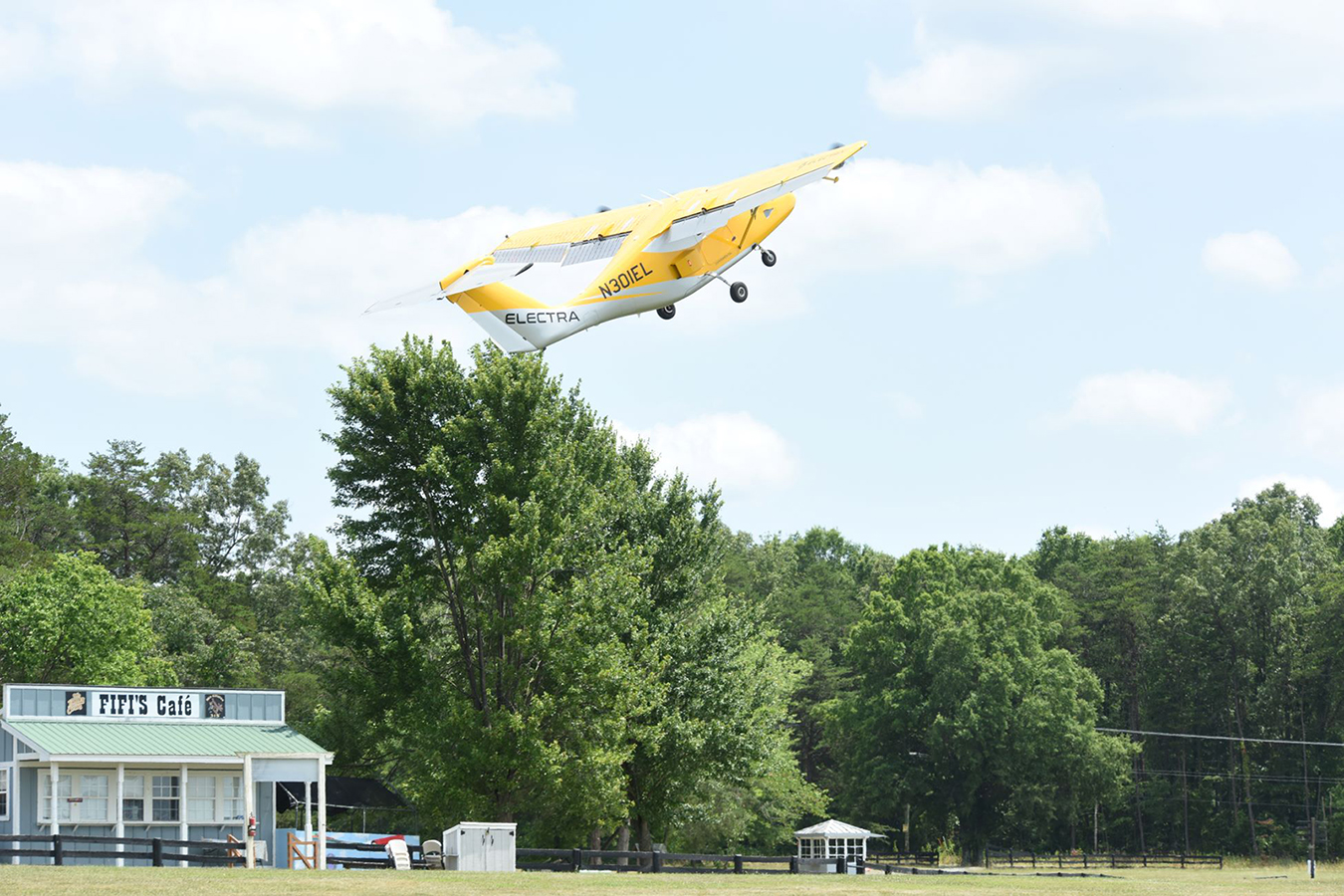Stay Up to Date
Submit your email address to receive the latest industry and Aerospace America news.
The Transformational Flight Integration Committee serves as a focal point for a community of practice engaged in technical, business and societal issues associated with transformational approaches to on-demand air mobility enabled by the convergence of advanced technologies.
The transformational flight sector continued to make strides toward scalable commercial operations, while some companies experienced financial headwinds.
In April, Chinese electric aircraft developer EHang received its production certificate from the Civil Aviation Administration of China for its EH216-S, a remotely supervised electric vertical takeoff and landing aircraft that seats two passengers. The EH216-S received type certification last year, making EHang the first advanced air mobility company to produce and sell an eVTOL with a standard category airworthiness certificate. The company delivered tens of aircraft to operators in China and claimed a positive, adjusted net profit for the second quarter of 2024. While lack of recognition of EHang’s certifications outside of China is a barrier to exports, the company conducted international demonstrations throughout the year, including in the United Arab Emirates and Costa Rica.
The U.S. small drone industry took a significant step toward scalable commercial operations with FAA approving the first beyond-visual-line-of-sight commercial deliveries by multiple operators in the same airspace. This allowed Zipline and Wing, both of California, to conduct drone deliveries flying below 400 feet (122 meters) in the Dallas/Fort Worth area, relying on a Unmanned Aircraft System Traffic Management system to deconflict their flight plans. FAA also continued to work toward releasing a notice of proposed rulemaking for these operations.
In June, California-based Joby Aviation announced the completion of a 840-kilometer flight by a new hydrogen-fuel-cell-powered air taxi demonstrator. In May, Virginia-based Electra demonstrated takeoff and landing ground rolls shorter than 170 feet (52 meters) with its Goldfinch, a hybrid-electric short takeoff and landing, blown-lift demonstrator that was first flown in November 2023. Joby and Archer Aviation of California progressed toward eVTOL type certification as FAA published the final G-1 certification basis for each company’s powered-lift aircraft in the first half of 2024. In June, FAA released for comment a draft advisory circular guiding the certification of other powered-lift aircraft. In October, FAA published a special rule for powered-lift aircraft training and operations.
In the realm of eVTOL flight tests, Archer and Vermont-based BETA Technologies completed bidirectional transitions between powered-lift and wing-borne flight with their prototypes. BETA’s first full-transition flight with an ALIA occurred in April with a pilot on board, while Archer’s Midnight performed its first full-transition flight in June with a remote pilot.
As part of U.S. Air Force Agile Flag exercises in January and August, California-based autonomous aircraft system developers Xwing and Reliable Robotics demonstrated fully automated cargo-carrying flights between military bases with their modified Cessna Caravan aircraft.
There were also policy accomplishments related to advanced air mobility. In March, the American Planning Association published a 96-page report for state and local planners and policymakers, describing the coming AAM capabilities and requirements and how to integrate this technology into communities and existing transportation systems. In May, U.S. President Joe Biden signed the bipartisan FAA Reauthorization Act signed into law, enacting a variety of recommendations, directives and incentives to accelerate AAM development and deployment.
The effects of tightening markets were visible on the nascent AAM industry. In July, California-based Universal Hydrogen, which last year flew a prototype hydrogen powertrain intended for regional aircraft, ceased operations. In June, Joby acquired the autonomy division of California-based Xwing. Germany-based eVTOL developer Volocopter was reportedly weeks away from running out of capital before raising additional funds in June, and Lilium, another German eVTOL developer, in October announced it would file for insolvency. For the industry to continue growing and attracting capital, it is critical for industry leaders to deliver on their plans to begin passenger air taxi service in the coming years.
Stay Up to Date
Submit your email address to receive the latest industry and Aerospace America news.




